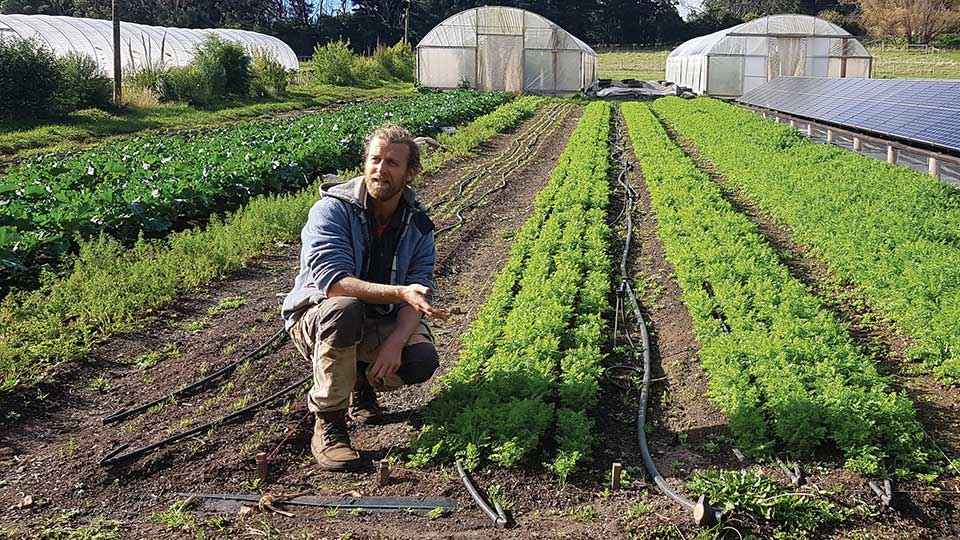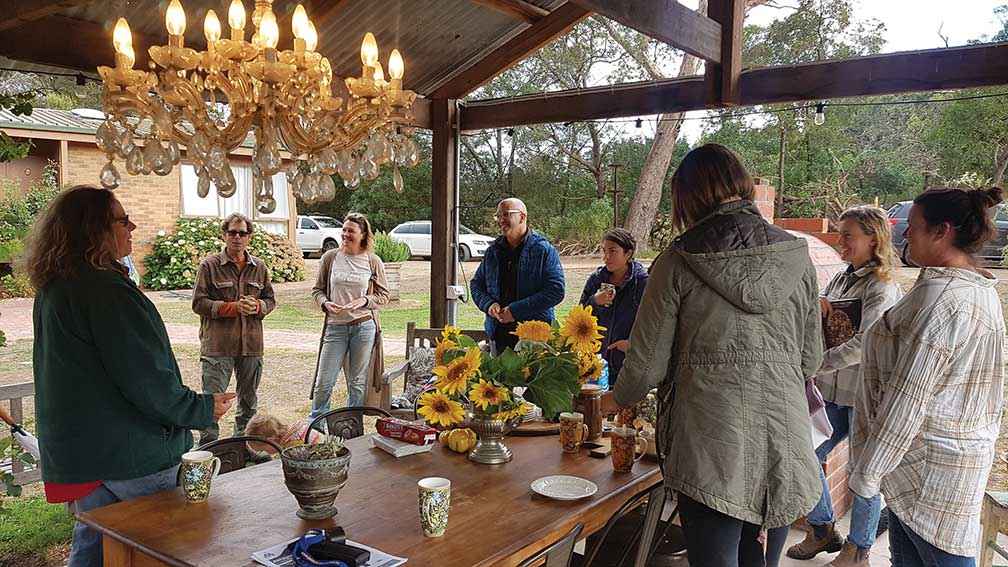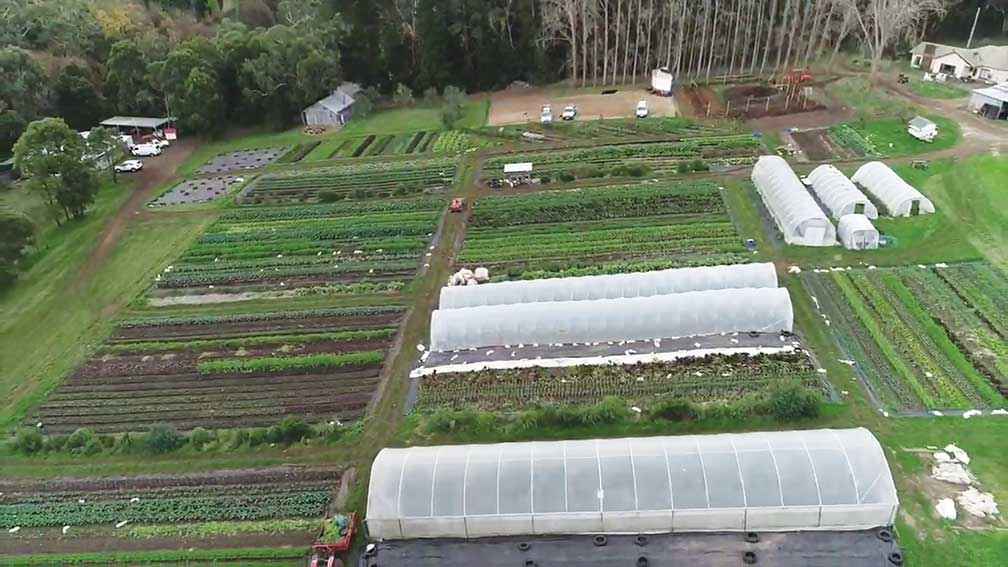Victorian Landcare Magazine - Summer 2021, Issue 80

The area surrounding Port Phillip and Western Port bays has reliable rainfall, fertile soils and easy access to a potential market of (Melbourne’s) five million people. This is a peri-urban region where growth corridors, green wedges, holiday destinations, hobby farmers and working farms meet. It is the second most valuable agricultural region in Victoria, producing 15 per cent of the gross value of the state’s agriculture from four per cent of its farmland.
Among the large commercial farms there are many smaller niche enterprises supplying high value produce – often directly to the consumer. These small farms may be only 1–20 hectares in size, but they grow high value crops such as vegetables, berries, nuts, grapes or fruit, often employing multiple staff and generating significant returns.
Many of these smaller farm enterprises are new to farming and keen to get involved in the local community. They often join local Landcare groups as they respect the land, want to manage it well and are eager to learn.
Industry extension and advice provided by departments and service providers often focuses on the common farm enterprises so newer niche operations that are not as well researched may miss out.
The Western Port Catchment Landcare Network (WPCLN) has been supporting farmers with training and extension in best practice land management training for more than 15 years. In conjunction with our partners from the Bass Coast Landcare Network (BCLN), Mornington Peninsula Shire and the Australian Government National Landcare Program, we have also developed specific programs to support small enterprises.
One of the most effective ways that farmers learn from each other is to meet on each other’s properties, ask questions and discuss their successes and mistakes.
Over the past decade we have established numerous farmer discussion groups of 10–20 farmers who meet on a regular basis. The groups often invite guest presenters to focus on a topic of interest. The groups are very popular and provide a supportive learning environment for the participants.

Above: Farmer discussion groups can assist those in niche enterprises with land management knowledge and skills. This group was meeting before COVID-19 restrictions.
One of these discussion groups targets the small market and kitchen gardeners on the Mornington Peninsula who grow vegetables for local restaurants and wineries. This group has provided opportunities for participants to meet other growers, exchange ideas and discuss topics of interest such as marketing and pest management.
When many of the local restaurants and wineries closed due to COVID-19 several growers in the group pooled resources and found new markets for their produce.
Another discussion group established by the BCLN has attracted farmers interested in different niche farm enterprises located throughout their region. This group focuses on a new enterprise each time they meet. They have visited free range pig, olive, mushroom, organic vegetable, dairy cheese, heritage apple, deer, avocado and hydroponic farms. The walks and discussions are very well attended. The generosity with which the host farmers have shared their knowledge has inspired and impressed all of the participants.
The farmer discussion groups provide a sounding board for new ideas. A member of the Mornington Peninsula group who identified as a new (non-generational) farmer, appreciated the guidance from the experienced farmers in the group in making sure they were going down the right path. Many participants have reported the benefits of the group for social connections and friendships made in an industry that can be very isolating.
Mikey Densham from Mossy Willow Farm at Main Ridge is a good example of a farmer making the most out of a small operation. Mikey manages a 0.6-hectare organic vegetable and flower operation with a team of four full-time employees.

Above: Small farms can be highly productive and demonstrate good land management practices.
Another discussion group established by the BCLN has attracted farmers interested in different niche farm enterprises located throughout their region. This group focuses on a new enterprise each time they meet. They have visited free range pig, olive, mushroom, organic vegetable, dairy cheese, heritage apple, deer, avocado and hydroponic farms. The walks and discussions are very well attended. The generosity with which the host farmers have shared their knowledge has inspired and impressed all of the participants.
“Farming for us is a way of life, not just a job. We strive to farm in a way that supports life and creates fertility. Our practices are gentle upon the landscape, yet we maintain an incredibly high production/yield per square metre. We love to show that high quality production doesn’t have to come at a cost to nature,” Mikey said.
“We take a lot of inspiration from methodologies encouraging the use of good design and the inclusion of natural elements and patterns in the landscape. Trees and other perennial plants are central to our farmscape and provide us with animal habitat, windbreaks, forage, financial income and beauty.”
The small enterprises on the peri-urban fringe are sometimes viewed as hobby farms. Our discussion groups show they are actually setting a very high standard in productivity and regenerative farm management.
Peter Ronalds is Sustainable Agriculture Manager at Western Port Catchment Landcare Network. For more information email peter@wpcln.org.au